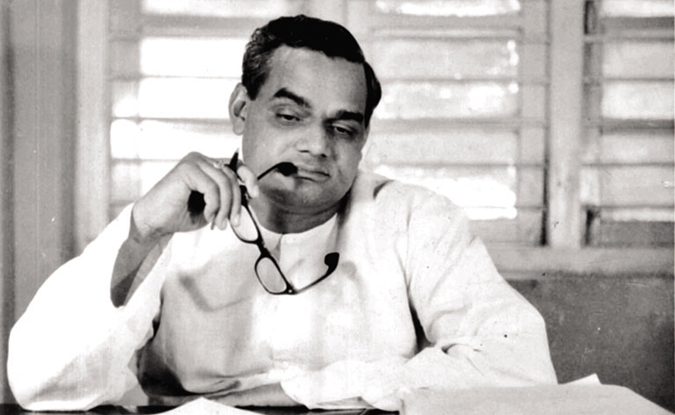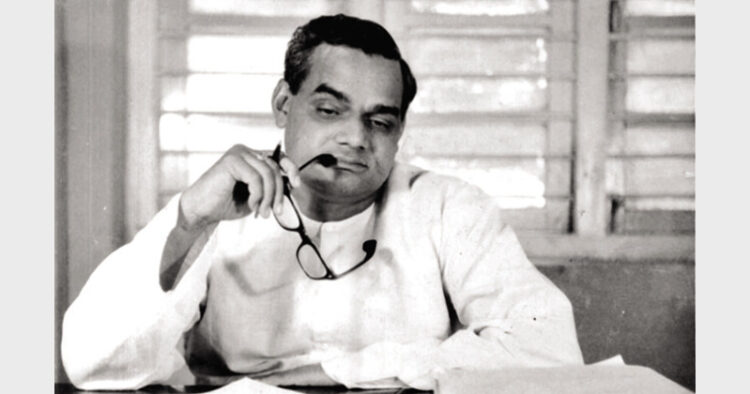Ashok Malik

Almost all obituaries have recalled how Atal Behari Vajpayee came to politics via journalism following death of Dr Syama Prasad Mookerjee at the Kashmir prison. He had dropped out of law school to join Rashtra Dharma magazine in 1947 and later served Panchjanya and daily Veer Arjun among others. A few have mentioned how naturally this easy to access leader and the Prime Minister, responded to journalists. However no mention has been made of what Atal ji did for journalists, as a popular political leader and a tall Prime Minister.
Inaugurating the Biennial Conference of the National Union of Journalists (India) at Mandi Gobindgarh (Punjab) where he launched the futuristic National Union of Journalists (India) Initiative on Cyber Journalism in July 1998, he revealed that government had plans to bring legislation on freedom of information, as every citizen had the right to information, except in matters related to national security or international relations. This led to enactment of Freedom of Information Act, 2002 succeeded by Right to Information law under the successor UPA Government led by Dr Manmohan Singh.
Talking about his life as a journalist before Independence, Atal ji told journalists from all regions of India — those days everyone wanted to contribute to the cause, sadly journalism has now become a business. The aim of newspapers should not be to earn revenue only. Media in India has a great role to play in giving right direction to educated youth, scientists and engineers.
Pointing to negative trends in media in an event to commemorate 125 years of The Hindu, Atal ji said having had first-hand experience of governance for the past five years, I know the shortcomings in our system better than before. The media is welcome to expose these shortcomings. The point I am stressing is that the approach should be fair and balanced. On another occasion he reminded media persons “in the end, only those names and products of journalism survive the test of time that meet the test of credibility”.
He rued the increasing tendency in a section of media to project trivial things, to give more importance to certain aspects than intrinsically due, to highlight the fads and fashions of the rich and the over-privileged and to aggressively advertise consumerist lifestyle simply beyond reach of the majority. He wanted newspapers to cater to small towns and villages, and not adopt a negative attitude due to which truth got suppressed; selection of news should be in national interest.
He promised that his government would create atmosphere to ensure no one would try to browbeat media as had happened during the emergency. His idea of role of media was one that will contribute to nation building in a positive way. His administration supported the launch of Journalists Welfare Foundation as a non-government NUJ (I) effort at its Biennial convention in Surajkund near Delhi.
Before notification, Manisana Wage Board award for Journalists and non-journalist newspaper employees submitted to NDA-one government under his stewardship, saw the maximum number of positive changes, thanks to his personal direction to the Union Labour Ministry.
(The writer is a senior journalist and president of National Union of Journalists (India)













Comments